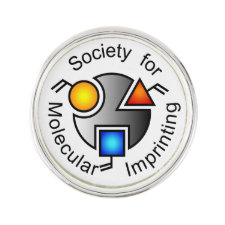
Authors: Yano K, Tanabe K, Takeuchi T, Matsui J, Ikebukuro K, Karube I
Article Title: Molecularly imprinted polymers which mimic multiple hydrogen bonds between nucleotide bases.
Publication date: 1998
Journal: Analytica Chimica Acta
Volume: 363
Issue: (2-3)
Page numbers: 111-117.
DOI: 10.1016/S0003-2670(98)00082-8
Abstract: A polymerizable 2,6-bis(acrylamido)pyridine was synthesized for use as a functional monomer in molecular imprinting applications. This monomer is expected to form multiple hydrogen bonds with a specific target molecule by mimicking multiple hydrogen bonds between nucleotide bases, thus allowing a specific molecular memory in molecularly imprinted polymers. A number of imprinted polymers were prepared and their properties were evaluated by liquid chromatography. It was shown that alloxan-imprinted polymer exhibited a higher affinity to its template molecule alloxan than to thymine or theobromine. The molar ratio of template to functional monomer in the prepolymerization mixture was optimized. Barbiturates were molecularly imprinted for more practical applications. Cyclobarbital- imprinted polymers showed a distinct preference for its template, while the non-imprinted polymer had no affinity to the compounds tested. Chromatographic results suggested that the malonylurea structure possessed by templates was crucial for molecular recognition. Moreover, no barbiturate was retained by the cyclobarbital-imprinted polymer when the eluent was changed from chloroform to methanol, indicating that the polymeric recognition was dominantly mediated by hydrogen bonds. (C) 1998 Elsevier Science B.V



Join the Society for Molecular Imprinting

New items RSS feed
Sign-up for e-mail updates:
Choose between receiving an occasional newsletter or more frequent e-mail alerts.
Click here to go to the sign-up page.
Is your name elemental or peptidic? Enter your name and find out by clicking either of the buttons below!
Other products you may like:
 MIPdatabase
MIPdatabase









